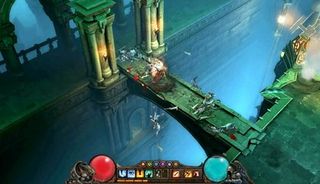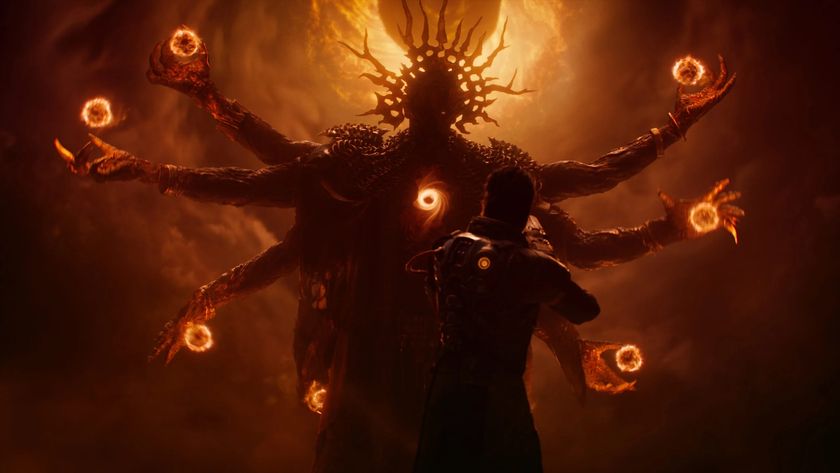The Devil Returns
Blizzard avoids the blunders made by other developers
Praise be to Blizzard for not abandoning us. For a while, it seemed Blizzard was so giddy over the truly monstrous success of World of Warcraft that it might shelve its non-MMO Diablo and StarCraft franchises. That decision wouldn’t have been unprecedented, as EA and Origin Systems stopped Origin’s development of non-MMO games and let the legendary single-player Ultima and Wing Commander series lie fallow after Ultima Online launched to unexpected commercial success. Ultima Online attracted up to 250,000 subscribers at its peak, but World of Warcraft has achieved an entirely unique level of financial success by garnering more than 10,000,000 players, so, devoting resources exclusively to similar MMO products would arguably have been even more justifiable. Fortunately, Blizzard isn’t run by dolts.

Blizzard realizes there’s greater value in continuing to develop its brands in a variety of ways. While it’s likely inevitable we’ll get a StarCraft Online and another fantasy MMO that uses the Diablo franchise, we’ll get the opportunity beforehand to play more traditional installments of those classics
EA paid the price for its short-sighted decision to terminate Origin’s non-MMO game development—the Origin team struggled to duplicate Ultima Online’s success and never managed to release another online game. In fact, EA made an incessant series of mistakes in developing online games, a whole slew of which—including Majestic, Ultima Online 2, Motor City Online, Privateer Online, Ultima X, and Earth & Beyond—were either never commercially released or were sustained for only brief MMO life spans. Even The Sims Online attracted a tiny player base compared to the series that inspired it, and soon will go offline permanently. Successful MMOs are the most lucrative PC games, but it’s extremely difficult to attract and maintain a player base that’s sufficiently large and loyal enough to justify an MMO’s development and operating costs. Giant companies like Microsoft and EA have repeatedly failed despite their tremendous resources, and most MMO projects have lost buckets of money.
Blizzard recognizes that more traditional games can generate the sort of large, loyal player community that can ultimately be drawn upon to help successfully launch an MMO. So, Diablo III is on its way, and it looks fantastic. It’s the first 3D game in the series, but it retains the traditional isometric perspective and incorporates interactive environments. It recaptures the original Diablo’s feeling of playing with a cool miniature world, which was partially lost in Diablo II’s muddy and outdated low-res graphics. The inspired monster designs and distinct character classes appear to foreshadow another incredibly addictive action RPG.

Hellgate developer Flagship suspended its subscription service, leaving many subscribers feeling burned
Yet, Diablo III arguably isn’t the first Diablo II offspring. That nod must go to Hellgate: London, which was developed by core team members of the Diablo series, and sadly appears ready to join EA’s annals as another failed online game. Hellgate is an excellent action RPG that was crippled by a disastrous subscription-fee model. Despite offering tremendous value by including a huge campaign and cooperative online multiplayer (as the Diablo games did), Hellgate offended hordes of gamers by asking them to pay a monthly fee for perks, such as a larger stash and additional content. The subscription model utilized development resources that would have been better deployed polishing the game before its release. Optional expansions like those Guild Wars has successfully released have proven a more commercially palatable manner of charging for additional content. Hellgate is an excellent action RPG that a lot of gamers aren’t going to get to enjoy because of its terrible online strategy.
But now, at least we know a true sequel to Diablo is rising from the abyss, and let’s hope Blizzard once again proves it doesn’t make those kinds of mistakes.
August 8, 2008
Sign up to the 12DOVE Newsletter
Weekly digests, tales from the communities you love, and more
Most Popular






